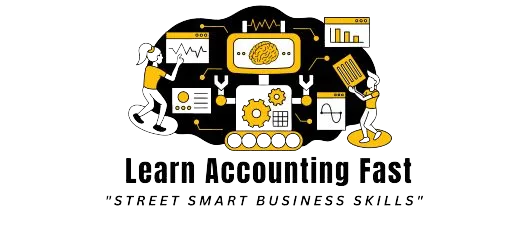Struggling to Make Sense of Business? Discover smart business growth strategies that will transform your business without the overwhelm.
Discover actionable business insights and practical strategies that have helped thousands of business owners achieve clarity, profitability, and sustainable growth.
Do you feel overwhelmed by confusing financials, constantly battling business challenges?
I remember the day I stared at my financial reports, feeling completely lost not knowing where to turn to next.
Every term felt like a foreign language, and I worried about making costly mistakes.
Then, I decided to learn the basics of successful business principles and accounting jargon—just enough to feel confident.
In weeks, everything clicked. I could understand reports, make smart informed decisions, and even save time and money by spotting inefficiencies.
It wasn’t about becoming an accountant; it was about empowering myself. If you’ve ever felt the same, know that business clarity is within reach, and the peace of mind you’ll gain is worth every step.
Don’t let confusing business and accounting terms hold you back. Learning the basics is easier than you think, and the reward is priceless, clarity, time saved, and the power to shape your financial future. You can do this too.

Colin Burr CEO
Street Smart Business Secrets
5 Street-Smart Tips
Turbocharge Your Business Growth
Master Cash Flow Management.
Imagine never worrying about having enough cash to pay your bills again. Let me show you how to stay in control of your cash flow.
Understand Financial Statements for Better Decisions.
Think about the power of reading your financial statements with ease, identifying opportunities for growth instantly.
Leverage Your Assets Wisely.
Picture yourself confidently using your business assets to maximize profit, without taking unnecessary risks.
Tax Planning Strategies for Small Businesses.
Imagine saving thousands with effective tax strategies that put money back in your pocket.
Balance Growth and Profitability.
Learn the secrets to grow your business without compromising your hard-earned profits.
Small Business Owners, Students,
And Corporate Managers.
Transform Confusion into Confidence:
Achieve Sustainable Growth Turn Insights Into Action for Real Results
Build Resilient Systems
Success comes from consistency, not chaos. Without reliable systems, businesses struggle to scale and adapt to change.
Create repeatable processes for tasks like customer service, sales, and daily operations.
Start by documenting your workflows, identifying bottlenecks, and automating repetitive tasks where possible.
For example:
A bakery streamlined its operations by standardizing recipes and training staff on the same process, reducing errors and increasing output by 20%.
Master Cash Flow Management
Without steady cash flow, even profitable businesses can fail. Cash flow determines how smoothly your business operates day-to-day.
Track income and expenses carefully, and ensure you always have a cushion for unexpected costs.
Use a cash flow management tool or spreadsheet to forecast 90 days ahead. Negotiate payment terms with suppliers and incentivize early payments from customers.
For example:
A marketing agency avoided late payroll issues by offering clients a 5% discount for early payments, improving cash flow predictability.
Prioritize Customer Relationships
Loyal customers are the backbone of any successful business. Retaining them costs less and brings more revenue than constantly finding new ones.
Focus on delivering exceptional value and building trust with personalized experiences.
Use CRM software to track customer interactions, send personalized follow-ups, and regularly ask for feedback to improve your services.
For example:
An e-commerce store increased repeat purchases by 30% by sending tailored emails with exclusive offers based on past purchases.
Adapt to Market Trends Quickly
Staying relevant in a changing market ensures you don’t get left behind by competitors.
Keep an eye on industry shifts, customer preferences, and emerging technologies.
Dedicate time each month to review trends, attend industry webinars, and brainstorm ways to apply these insights to your business.
For example:
A local gym introduced virtual classes during the pandemic, retaining 70% of their customer base despite closures.
Invest in Yourself and Your Team
Growth starts with you and your people. Without learning and development, businesses stagnate.
Commit to ongoing education, whether it’s leadership, marketing, or industry-specific skills, and empower your team with training.
Allocate a portion of your budget for courses, workshops, and coaching. Encourage team members to share new ideas or insights from their learning.
For example:
A consultancy doubled its revenue after its founder attended a sales mastery workshop, applying advanced techniques to close high-value deals.
You Can Do It too
Still Not Sure? We’ve Got You Covered.
What are common mistakes people make when interpreting accounting terms?
Misunderstanding terms like accruals, deferred revenue, or operating expenses can lead to incorrect financial conclusions.
What is the easiest way to start learning business accounting jargon?
Discovering common terms like assets, liabilities, and equity can help you grasp the basics quickly.
Why is understanding business and accounting terminology important for business owners?
It enables you to interpret financial reports, make informed decisions, and communicate effectively with suppliers, accountants or stakeholders.
How can I use accounting jargon to improve cash flow management?
Terms like accounts receivable, accounts payable, and cash flow statements provide insights to optimize your finances.
What does 'depreciation' mean, and why is it important?
Depreciation spreads the cost of an asset over its useful life, helping reflect its current value and manage tax obligations.
How do I understand and calculate gross margin or profit margin?
Learning to calculate gross margin (Revenue - Cost of Goods Sold) shows how profitable your products are before expenses.
What’s the difference between a balance sheet and an income statement?
A balance sheet shows a company's assets, liabilities, and equity at a specific point in time, while an income statement Has nothing to do with Cash it shows profitability over a period.
Committed To Making SUCCESSFUL Business Principles
Simple And Easy To Understand!
"I was impressed by the ease with which the concepts are explained and easily understood. The range of topics covered, and understood, in a very short period of time was astounding"
Lindsay Grace Chartered Accountant New Zealand
Get INSTANT Access To
Street Smart Business Secrets
Take control of your financial destiny and navigate the world of business and accounting with ease and confidence.
Street Smart Business Insights empowers you to understand the language of business, enabling you to actively participate in financial discussions, effectively manage your business, and ultimately drive your business's success.
No more feeling overwhelmed or left in the dark – it's time to take charge now!
Disclaimer: The content shared on this site and in these videos is for informational and educational purposes only. Despite my 30 years of experience as a business owner, I am not a certified financial advisor, accountant, or legal professional. The insights and tips shared are based on personal experiences and should not be taken as professional financial or legal advice. For financial, legal, or professional advice, please consult with a certified professional in the respective field. I disclaim any liability or responsibility for actions taken based on any information found in this site or these videos.
Copyright Street Smart Business Secrets- All Rights Reserved 2025

